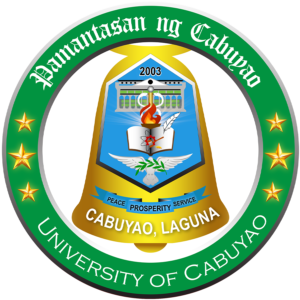Introduction
The Privacy Notice of Pamantasan ng Cabuyao (University of Cabuyao) (PnC-UC) is hereby adopted in compliance with RA 10173, or the Data Privacy Act of 2012 (DPA), its Implementing Rules and Regulations (IRR), and other relevant policies, including issuances of the National Privacy Commission. This presents the University guideline about the data that the institution collects, uses, discloses, and transfers within and outside the organization.
PnC-UC (“University”) respects your right to privacy and aims to comply with the requirements of all relevant privacy and data protection laws, particularly the Data Privacy Act of 2012. Please take the time to read this Notice explaining how we process the information we collect from or generate about you every time you access this website.
What We Collect
Whenever you browse the University website, we automatically record technical information about your visit. They may include the following:
- browser type and version
- browser plug-in types and versions
- date and time of connection
- length of visits to certain pages
- IP address
- operating system
- pages viewed/searched for
- page interaction information (e.g., scrolling, clicks, and mouse-overs)
- page response time
- time zone setting
- download errors
- platforms and referrers
In most instances, this information, by itself, is not sufficient to determine your identity.
Why We Collect Them
The recorded information is used primarily to help keep the site safe and secure. In addition, it may also be used for bug tracking, investigations relating to a security or data breach, and usage statistics.
If we need to use any collected information that constitutes personal data for purposes not compatible with those listed here, we will inform you prior to such use and, where required by law, obtain your consent.
How We Use, Store, and Retain Them
All information collected by domains maintained by the University is stored in its data centers that are accessible only to authorized personnel and agents, such as, in some cases, third party service providers. Third parties who maintain or manage websites for some units or offices of the University store their collected information in their own designated servers or data centers.
The collected information is kept for as long as necessary to achieve the declared purpose for its collection. In no case is it shared with or transferred to other persons or organizations, unless required or permitted by law.
Your Rights with Respect to Your Personal Data
We recognize your rights with respect to your personal data, as provided by the DPA. If you wish to exercise any of your rights, or should you have any concern or question regarding them, this Notice, or any matter involving the University and data privacy, you may contact the Data Privacy Officer of Pamantasan ng Cabuyao at the following:
Brgy. Banay-Banay, City of Cabuyao, Laguna
Email: info@pnc.edu.ph
Changing This Privacy Notice
Pamantasan ng Cabuyao (University of Cabuyao) may need to modify, amend, or make changes to this privacy notice from time to time to reflect the University’s current privacy practices. On such occasions, the institution will notify all data subjects of material modification to this Privacy Notice through the school’s official website, myPnC, Pinaccle, and when permissible, other means of communication. If the institution shall make any changes to this policy, the date below shall be changed and reflect when the said policy is updated.
Other University Policies
Other policies of the University, which are not inconsistent with this one, will continue to apply. If any provision of this Privacy Notice is found to be unenforceable or invalid by any court having competent jurisdiction, the invalidity of such provision will not affect the validity of the other provisions, which shall remain in full force and effect.
Last Updated: January 3, 2023





